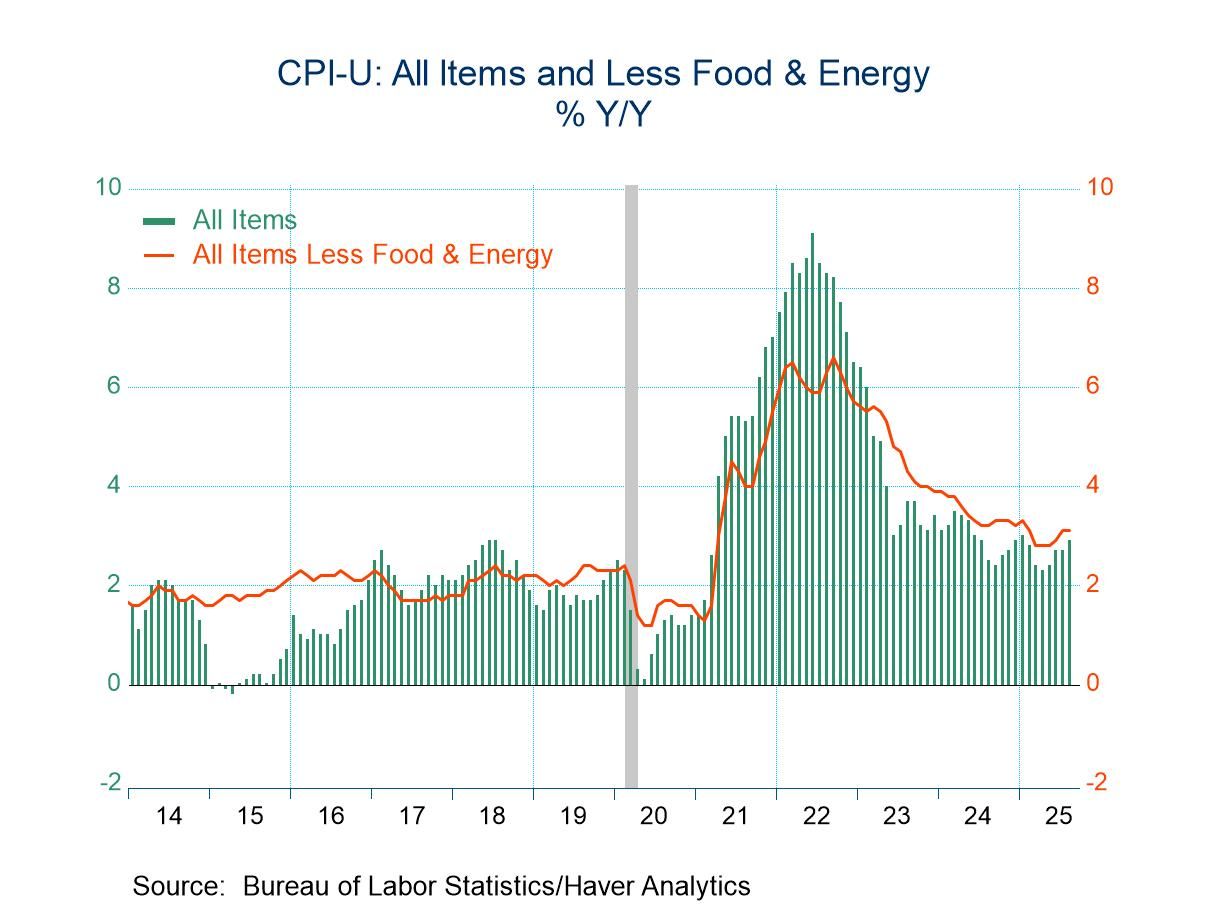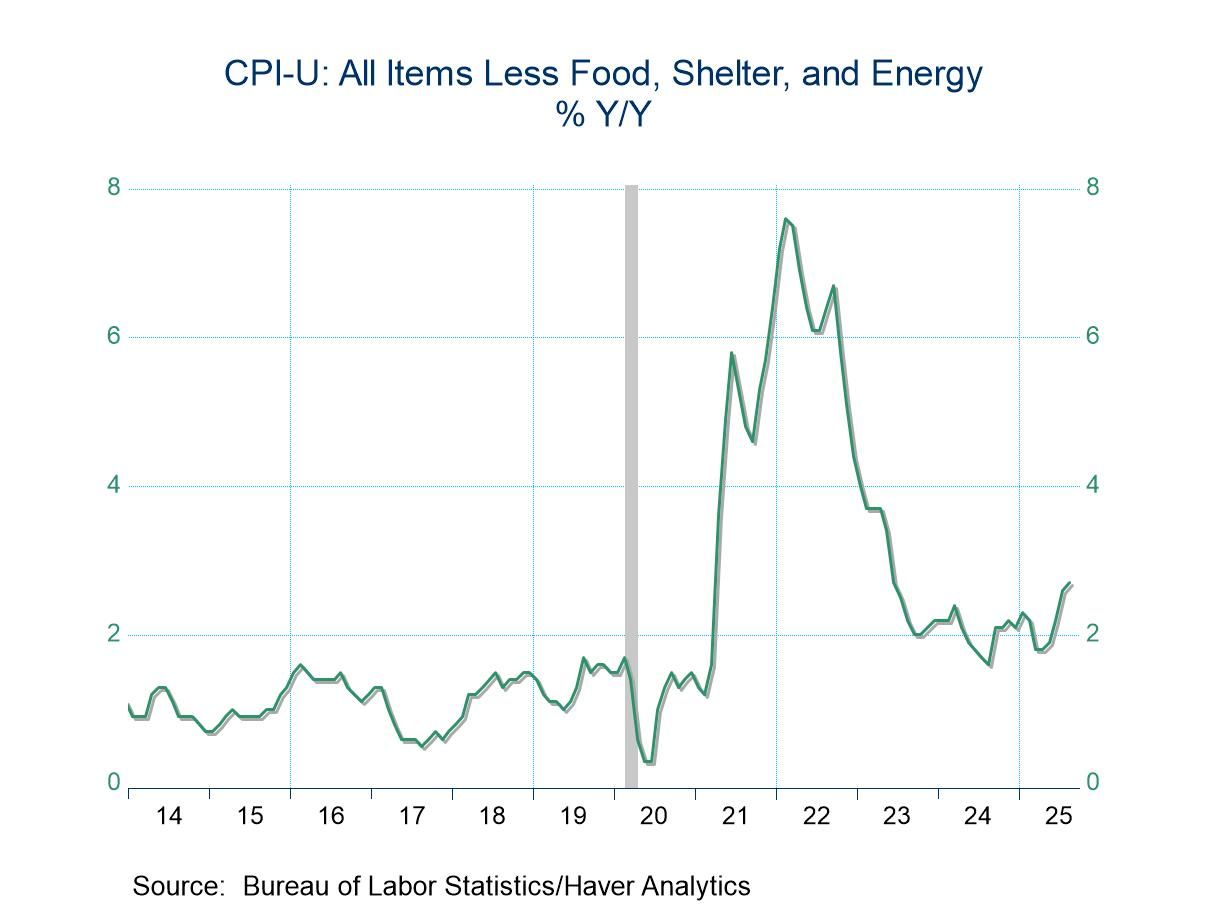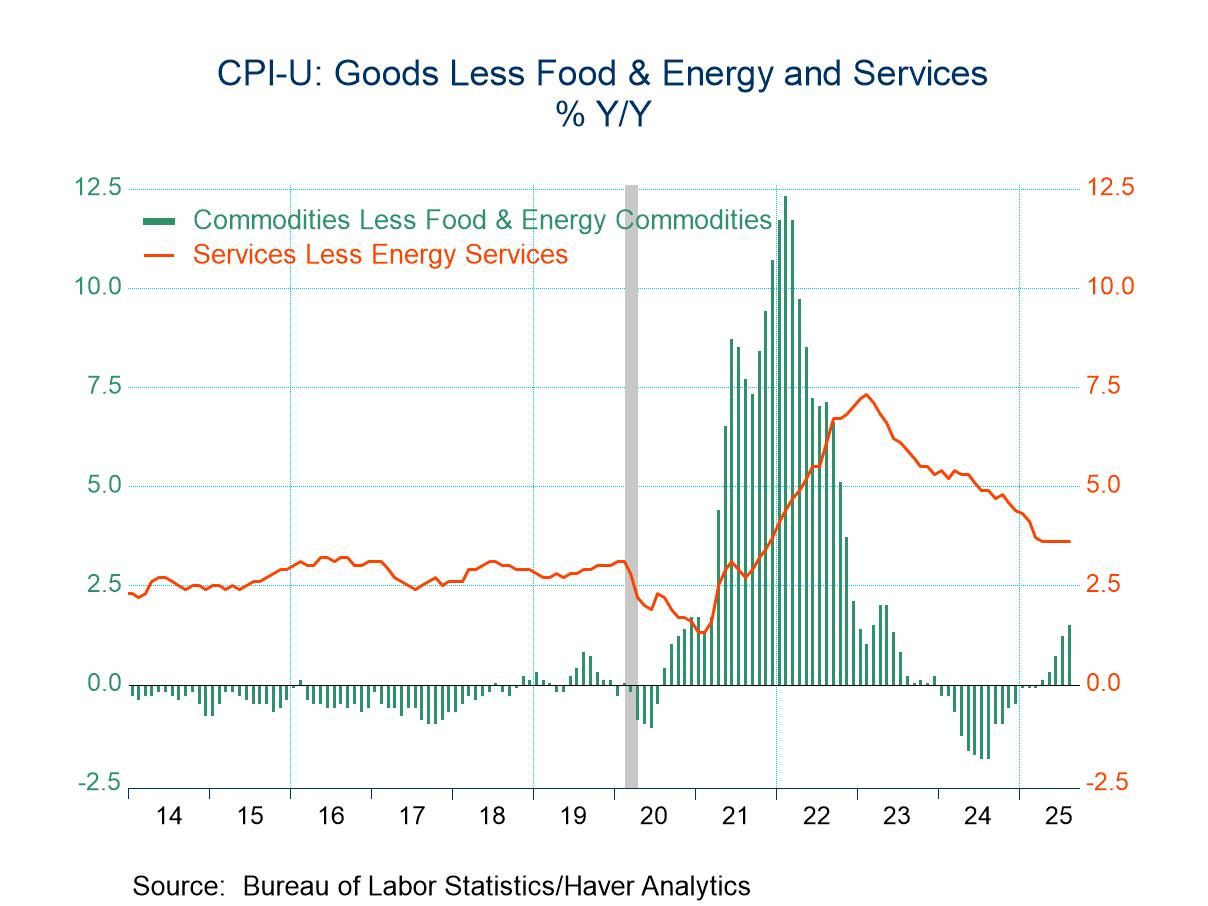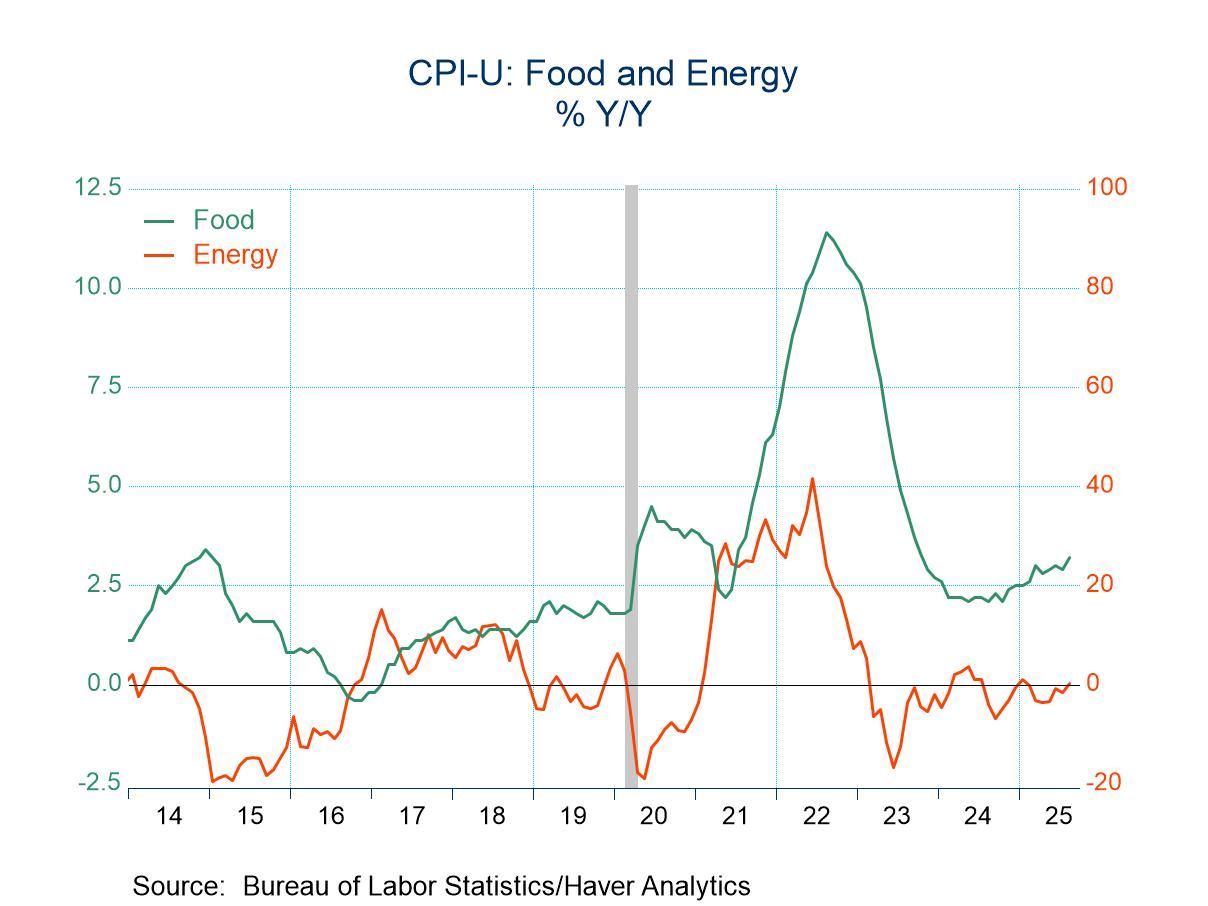U.S. Consumer Price Inflation Firms in August
by:Tom Moeller
|in:Economy in Brief
Summary
- Energy & food prices strengthen.
- Core inflation steadies.
- Core goods gain increases but core services inflation eases.


The Consumer Price Index increased 0.4% in August after rising 0.2% in July and 0.3% in June. The increase outpaced the 0.3% gain expected in the Action Economics Forecast Survey. The 2.9% y/y increase in the headline CPI in August was the strongest since January and was increased from 2.3% in April. The y/y gain matched last year’s increase and remained below the 9.1% peak in June 2022. The CPI excluding food & energy increased an expected 0.3% last month after a 0.3% July rise and a 0.2% gain in June. The 3.1% y/y August rise compared to 3.1% in July. It remained below the 6.6% peak in September 2022.
Energy prices rose 0.7% (0.2% y/y) last month after falling 1.1% in July. Gasoline prices rebounded 1.9% (-6.6% y/y) after falling 2.2% in July. Fuel oil prices slipped 0.3% (-0.5% y/y) after rising 1.8% in July. Natural gas prices fell 1.6% (+13.8% y/y) following a 0.9% decline, and electricity prices edged 0.2% higher (6.2% y/y) after a 0.1% slip in July.
Food prices rose 0.5% (3.2% y/y) last month after holding steady in July. Egg prices were unchanged (+10.9% y/y), after falling 3.9%. Meat, poultry & fish prices strengthened 1.1% (5.4% y/y) after increasing 0.7%, while dairy product prices edged up 0.1% (1.3% y/y), after rising 0.7% in July. Cereal & bakery product costs also increased a minimal 0.1% (1.1% y/y) following a 0.2% decline while fruit & vegetable prices strengthened 1.6% (1.9% y/y), after holding steady in July. Nonalcoholic beverage prices increased 0.6% (4.6% y/y) in August after falling 0.5% in July.
Goods prices less food and energy rose 0.3% in August after two straight 0.2% increases. The 1.5% y/y price increase was increased from a 1.9% y/y decline in both July and August of 2024. Prices of used cars and trucks jumped 1.0% (6.0% y/y) last month, after rising 0.5% in July, while new vehicle costs improved 0.3% (-0.7% y/y) after holding steady. Apparel prices increased 0.5% (0.2% y/y) in August after rising 0.1%. Appliance prices rose 0.4% (0.3% y/y), after falling 0.9%. Home furnishings prices edged 0.1% higher (2.8% y/y) after rising 0.7% in July. Recreation product costs held steady (0.1% y/y) in August, after a 0.4% increase. Education & communication product costs declined 0.3% (-3.8% y/y) last month, after falling 1.3%. Medical care goods prices fell 0.3% (NSA, 0.0% y/y) after two months of 0.1% increase.
Services prices less energy strengthened 0.3% in August (3.6% y/y) after rising 0.4% in July. Shelter prices (35.5% of the CPI) rose 0.4% (3.6% y/y), after two months of 0.2% increase, as owners’ equivalent rent of primary residences increased 0.4% (4.0% y/y) after three straight months of 0.3% gain. The cost of lodging away from home rebounded 2.3% in August (-2.6% y/y), after five straight months of decline. Rents of primary residences gained 0.3% (3.5% y/y) in August for a second straight month. Transportation service prices jumped 1.0% (3.5% y/y) after gaining 0.8% and the cost of motor vehicle insurance held steady (4.7% y/y) in August, after rising 0.1%. Public transportation costs increased 3.6% (2.2% y/y) after rising 3.0% during July. The cost of medical services eased 0.1% (4.2% y/y) after a 0.8% rise, and the cost of recreation services fell 0.2% (3.6% y/y) after rising 0.4% in July. Education & communication services prices rose 0.1% (1.0% y/y) after increasing 0.2% in July.
The Consumer Price figures can be found in Haver's USECON database. The expectations figure is contained in the AS1REPNA database.


Tom Moeller
AuthorMore in Author Profile »Prior to joining Haver Analytics in 2000, Mr. Moeller worked as the Economist at Chancellor Capital Management from 1985 to 1999. There, he developed comprehensive economic forecasts and interpreted economic data for equity and fixed income portfolio managers. Also at Chancellor, Mr. Moeller worked as an equity analyst and was responsible for researching and rating companies in the economically sensitive automobile and housing industries for investment in Chancellor’s equity portfolio. Prior to joining Chancellor, Mr. Moeller was an Economist at Citibank from 1979 to 1984. He also analyzed pricing behavior in the metals industry for the Council on Wage and Price Stability in Washington, D.C. In 1999, Mr. Moeller received the award for most accurate forecast from the Forecasters' Club of New York. From 1990 to 1992 he was President of the New York Association for Business Economists. Mr. Moeller earned an M.B.A. in Finance from Fordham University, where he graduated in 1987. He holds a Bachelor of Arts in Economics from George Washington University.
More Economy in Brief
 Global| Feb 05 2026
Global| Feb 05 2026Charts of the Week: Balanced Policy, Resilient Data and AI Narratives
by:Andrew Cates






